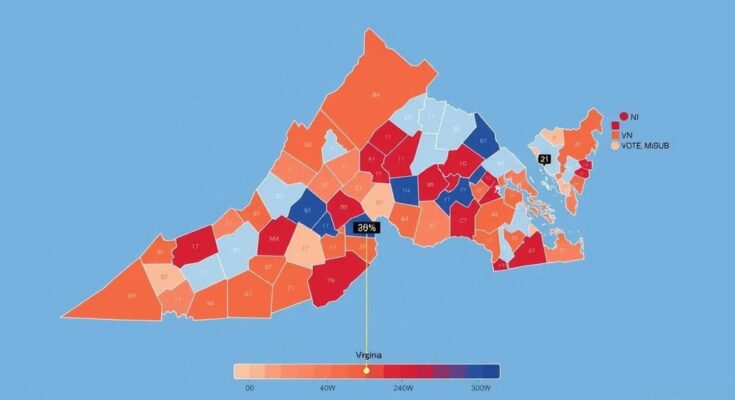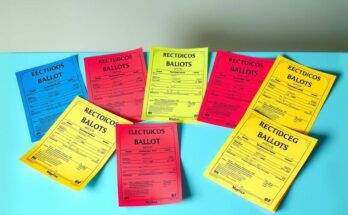Virginia’s recent special elections revealed no major shifts in voter sentiment, as Democrats held their legislative majority by winning two left-leaning districts. Despite Republican aspirations for a legislative gain, the outcomes suggest continuity in the state’s political landscape as it prepares for the gubernatorial race next year. Governor Youngkin faces a Democratic legislature during his final year in office, complicating his potential future presidential ambitions.
In recent special elections held in Virginia, political observers noted no significant shift in voter sentiment. The Democrats successfully maintained their slim majority in the state legislature by winning two districts that leaned Democratic, thus frustrating Republican hopes of gaining control following their recent success in national elections. The outcomes of these elections provide critical insights into the state’s political landscape as it gears up for the gubernatorial election next year. The commentary surrounding these races continues to highlight the ongoing political significance of Virginia, particularly as it contrasts with the broader national political climate.
During the elections, which coincided with a legislative session, Democrats held a 21-19 advantage in the Senate and a 51-49 lead in the House of Delegates. Notable was the voter turnout in Loudoun County, where approximately 19% of eligible voters participated amid challenging weather conditions. Political analysts emphasize that while these special elections are indicative of local sentiments, the upcoming gubernatorial election will provide a clearer picture of voter preferences at both the state and national levels. Republican Governor Glenn Youngkin’s term is nearing its conclusion, and despite speculation about his future presidential ambitions, he now faces a Democratic-controlled legislature.
Experts predict that upcoming races will attract significant national attention, as both parties aim to use Virginia as a barometer for their political health in the post-Trump era. Governor Youngkin’s proposed budget amendments, which include tax relief initiatives, underscore the potential for bipartisan negotiations, yet the success of these proposals remains uncertain given the divided legislative makeup. Overall, the special elections have reinforced the notion that Virginia will remain a focal point for political strategists in the coming years as the landscape evolves amid emerging candidates and party dynamics.
Virginia’s political landscape is of considerable interest, particularly because the state conducts its gubernatorial elections in the year immediately following a presidential election. This year’s special elections, held prior to the commencement of the legislative session, were closely monitored by political analysts seeking to gauge voter sentiment in light of recent national trends. Traditionally, these contests are viewed as early indicators of party strength and voter alignment as they relate to national issues and leaders.
In conclusion, the recent special elections in Virginia have demonstrated a continuation of the Democratic Party’s influence in the state legislature, reiterating their ability to safeguard their majority despite national Republican successes. As Virginia prepares for an important gubernatorial election, it remains pivotal for both national parties to observe and adapt to the evolving political dynamics within the state. With a closely divided legislature, the interaction between Governor Youngkin and Democratic lawmakers will be critical to watch in the upcoming sessions, especially regarding bipartisan initiatives intended to appeal to voters ahead of the elections.
Original Source: apnews.com




